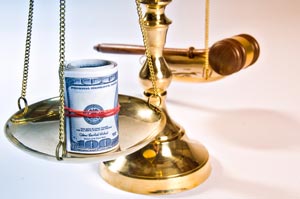 As a community we have come to embrace the idea that insurance companies exist to benefit us. This is not particularly true, as a for-profit company a insurance company’s number 1 priority is to maximize their profit and reduce loss. This is why you may notice if you are older, a smoker, or have a preexisting health condition your rates may be substantially higher. Generally speaking insurance companies will fulfill their duties as required, but there may be times a policy holder is denied their full benefits when they file a claim. By law all insurance companies must deal in “good faith” and fulfill the benefits of legitimate claims. “Bad faith” occurs when a policyholder’s benefits are in someway intentionally minimized or altogether denied.
As a community we have come to embrace the idea that insurance companies exist to benefit us. This is not particularly true, as a for-profit company a insurance company’s number 1 priority is to maximize their profit and reduce loss. This is why you may notice if you are older, a smoker, or have a preexisting health condition your rates may be substantially higher. Generally speaking insurance companies will fulfill their duties as required, but there may be times a policy holder is denied their full benefits when they file a claim. By law all insurance companies must deal in “good faith” and fulfill the benefits of legitimate claims. “Bad faith” occurs when a policyholder’s benefits are in someway intentionally minimized or altogether denied.
Examples of bad faith would be:
-Failure to act within a reasonable time frame
-Attempts to undervalue the claim
-Refusing to give a reasonable explanation to deny the claim
-Settling for less than the policyholder is entitled to
-Refusing to conduct a thorough investigation or misrepresenting the facts of the case
If a policyholder is denied the benefits outlined to them and their claim is legitimate, they can sue the insurance company in a bad faith claim if the denial was malicious and intentionally unreasonable or delayed. This bad faith claim will cover the policy holder’s full claim value, all the damages resulting from the delay or denial and the policyholder’s attorney fees. In particularly egregious cases the policyholder may also be awarded punitive damages, otherwise known as exemplary damages. This will be some sort of payment usually given completely to the policy holder to discourage the insurance company from repeating the same actions and further penalizing them. Bad faith insurance tort claims are unique in that unlike a standard breach of contract claim, tort claims are entitled to exemplary and punitive damages. The result would be that the policyholder could receive substantially more than the original claim and their losses was worth.
Punitive damages are awarded to compensate for the policy holder’s mental, emotional, physical and monetary distress; and to punish insurance companies who delay or deny claims without a reasonable cause. However bad faith insurance claims and punitive damages can involve costly expert analysis and legal witnesses as well as a thorough understanding of insurance law. If you feel that you may be eligible for punitive damages in a extreme bad faith insurance case speak to a personal injury attorney who specializes in bad faith insurance claims. They have the legal knowledge and resources to make sure that you receive fair compensation for your injuries, distress and loss of past and future income. On average those who hire the services of an attorney receive 3 times more than people who represent themselves.